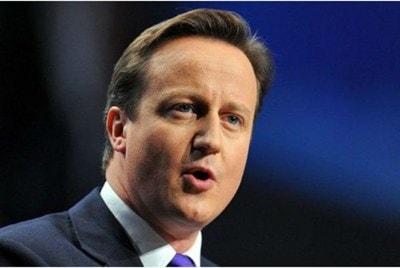Post-MH17: US, EU attack, Russia staunchly resists
(Baonghean) - On July 28, the leaders of the United States, France, Germany, the United Kingdom and Italy agreed to launch a series of stronger sanctions, targeting Russia's financial, defense and energy sectors. And as British Prime Minister David Cameron once said, the MH17 plane crash has acted as a catalyst for the West to "change its approach to Russia", while narrowing internal disagreements in agreeing to impose sanctions on Russia.
(Baonghean) - On July 28, the leaders of the United States, France, Germany, the United Kingdom and Italy agreed to launch a series of stronger sanctions, targeting Russia's financial, defense and energy sectors. And as British Prime Minister David Cameron once said, the MH17 plane crash has acted as a catalyst for the West to "change its approach to Russia", while narrowing internal disagreements in agreeing to impose sanctions on Russia.
The downing of flight MH17 on July 17 has led to calls for further Western action.
 |
| British Prime Minister David Cameron strongly called for increased sanctions against Russia. |
While in the past, US President Barack Obama's efforts to persuade European leaders to take stronger measures in punishing Russia encountered many difficulties due to the "uneven" interests among these countries, now Western countries seem to have found a certain consensus. Even Germany, which, due to its closely linked interests with Russia, had always been hesitant to discuss the level of sanctions, has now somewhat shown consensus with the US and other European countries. Chancellor Angela Merkel also admitted that the increase in sanctions is also aimed at finding a political solution to the Ukraine issue, in which Russia's role in what is happening in this Eastern European country is especially important. In the context of the continuing fierce fighting in Eastern Ukraine, it is easy to see that the US and Western countries are trying to use the MH17 incident to increase pressure on Russia, forcing Russian President Vladimir Putin to change his stance on the Ukraine issue. The problem that the West poses to Russia is very specific, which is to put pressure on the separatist forces in the East, forcing them to sit at the negotiating table and take concrete steps to ensure control over the Russia-Ukraine border area.
But as analysts have said, the MH17 incident was only a catalyst for the crisis in Ukraine, not a turning point, because the disaster has done little to change the world's perception of the crisis in Ukraine, including Russia. Faced with increasing pressure from the West, the Kremlin's strategy has hardly changed, and there is no sign that it will. Strong threats and warnings have been issued, economic sanctions have been imposed, and Russia has been expelled from the G8, but the sanctions have not swayed President Putin. Instead, Russia has gradually shifted to a closer partnership with the countries in the group of emerging economies (BRICS) including Brazil, India, China and South Africa. Even before the US and EU announced that they would increase sanctions, Russia remained calm, only sending out the message that "these moves will damage relations between Russia and the West in the security field and undermine the fight against terrorism and organized crime." President Vladimir Putin also bluntly stated that before making any accusations against Russia, countries should present real evidence. In addition, there was absolutely no information about a change in the approach to the Ukraine issue from the Kremlin.
If right after the MH17 crash, the spearhead of public opinion seemed to be directed towards Russian President Vladimir Putin, now the information flow has begun to be disturbed with different assumptions about who is responsible for this disaster. Moreover, the US sanctions against Russia are still calculated so as not to affect the world economy, because neither the US nor Europe wants to pressure Russia to the point of having to launch strong retaliations. Therefore, from now until the exact investigation results on the cause of the MH17 crash are available, even if the West "changes its approach" towards Russia, it will be difficult to force Russia to "change its approach" on the Ukraine issue.
Thuy Ngoc
